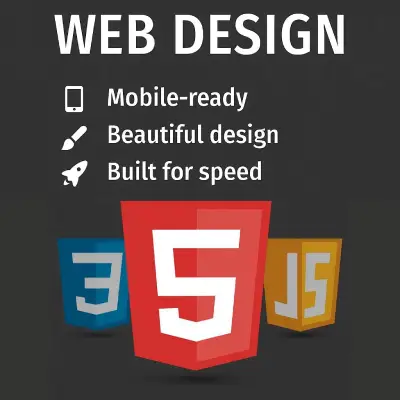Post at a Glance
As digital marketing changes and evolves, Entity SEO has emerged as a foundation for optimizing content in the age of artificial intelligence. Unlike traditional keyword-centric strategies, Entity SEO focuses on creating a web of interconnected concepts, entities, and relationships that search engines, particularly those powering AI Overviews, can easily interpret.
This approach ensures that content is not only discoverable but also contextually relevant in AI-driven search results. By aligning with how AI processes information, Entity SEO is transforming how websites rank and appear in these dynamic, snippet-like overviews that dominate modern search engine result pages (SERPs).
Entity SEO revolves around the concept of entities distinct, well-defined concepts like people, places, or things that search engines like Google use to understand content. By structuring content around entities, marketers can enhance their visibility in AI Overviews, which are concise summaries generated by AI to answer user queries directly on the SERP.
These overviews rely heavily on structured data, semantic relationships, and topical authority, all of which Entity SEO optimizes. Let’s dive into how Entity SEO shapes AI Overviews and why it’s a game-changer for digital visibility.
What Is Entity SEO and Why Does It Matter?
At its core, Entity SEO is about helping search engines understand the context and relationships within your content. Entities are not just keywords; they are specific, identifiable objects or concepts with attributes and connections. For example, “New York City” is an entity with attributes like location, population, and cultural significance, linked to other entities like “Manhattan” or “Statue of Liberty.” By optimizing for entities, you’re speaking the language of AI, which prioritizes understanding over mere keyword matching.
AI Overviews, such as those seen in Google’s Search Generative Experience (SGE), rely on entities to generate accurate and relevant summaries. These overviews pull information from various sources, synthesizing it into a concise response that appears at the top of the SERP. Entity SEO ensures your content is structured in a way that AI can easily parse, increasing the likelihood of being featured in these high-visibility summaries. By focusing on entities, you’re not just optimizing for search engines you’re optimizing for the future of search.
How Entity SEO Enhances AI Overviews
AI Overviews are designed to provide quick, accurate answers to user queries, often bypassing the need to click through to a website. This makes them both a challenge and an opportunity for SEO professionals. Entity SEO plays a pivotal role in ensuring your content is selected for these overviews.
Here’s how:
- Structured Data and Schema Markup: Entity SEO leverages schema markup to define entities and their relationships clearly. For instance, using schema like “Organization” or “Event” helps AI understand the context of your content. This structured data feeds directly into AI Overviews, making your content more likely to be featured.
- Semantic Relationships: AI Overviews prioritize content that demonstrates topical authority and clear connections between entities. By creating content clusters around related entities (e.g., a blog series on “New York City” linking to “Broadway” and “Central Park”), you signal to AI that your site is a comprehensive resource, increasing its chances of being included in an overview.
- Contextual Relevance: Entity SEO ensures your content aligns with user intent by focusing on the relationships between entities. For example, if a user searches “best coffee shops in Seattle,” an Entity SEO-optimized page about Seattle’s coffee culture, linked to entities like “Starbucks” and “Pike Place Market,” is more likely to be summarized in an AI Overview.
- Knowledge Graph Integration: Google’s Knowledge Graph, a database of entities and their relationships, powers many AI Overviews. By optimizing for Entity SEO, you increase the chances of your content being associated with or included in the Knowledge Graph, boosting its authority and visibility.
The Sympathetic Edge of Entity SEO
What makes Entity SEO so compelling is its ability to connect with users on a deeper, almost empathetic level. By focusing on entities that resonate with audiences such as local businesses, cultural landmarks, or beloved public figures you create content that feels personal and relevant. This heartfelt approach not only appeals to users but also aligns with AI’s goal of delivering meaningful, user-centric results. AI Overviews thrive on this relevance, pulling from sources that demonstrate authority and emotional resonance.
For instance, a blog post about “sustainable fashion brands” optimized with Entity SEO might link entities like “Patagonia” and “ethical manufacturing” to create a narrative that resonates with eco-conscious readers. When AI Overviews summarize this content, they’re more likely to highlight your site if it’s structured with clear entity relationships and authoritative data, making your content feel both trustworthy and relatable.
Strategies for Optimizing Entity SEO for AI Overviews
To harness the power of Entity SEO for AI Overviews, you need a strategic approach. Here are some actionable tips to get started:
- Use Schema Markup Extensively: Implement schema types like “Article,” “Place,” or “Person” to define entities clearly. Tools like Schema.org and Google’s Structured Data Markup Helper can guide you in creating markup that AI can easily interpret.
- Build Topical Authority: Create content clusters around core entities. For example, if your niche is “vegan recipes,” develop interconnected content about entities like “plant-based ingredients,” “vegan chefs,” and “sustainable cooking.” This signals to AI that your site is a go-to resource.
- Leverage Internal Linking: Link related entities within your site to create a web of relationships. For instance, a page about “Tesla” could link to entities like “Elon Musk,” “electric vehicles,” and “sustainable energy,” reinforcing topical relevance.
- Optimize for Voice Search and Conversational Queries: AI Overviews often cater to voice search queries, which are conversational in nature. Structure content to answer questions like “What is the best Italian restaurant in Chicago?” by defining entities like “Chicago” and “Italian cuisine.”
- Monitor Knowledge Graph Presence: Use tools like Google’s Knowledge Graph Search API to check if your entities are recognized. If not, focus on building authority through high-quality, entity-focused content.
Challenges and Considerations in Entity SEO
While Entity SEO offers immense potential, it’s not without challenges. AI Overviews are highly competitive, and not every piece of content will be featured. Additionally, over-optimizing for entities without providing value can lead to thin content that fails to engage users or AI. To avoid this, prioritize quality over quantity, ensuring your content is informative, engaging, and aligned with user intent.
Another consideration is the evolving nature of AI algorithms. As AI Overviews become more sophisticated, they may prioritize different signals, such as user engagement metrics or real-time data. Staying updated on algorithm changes and adapting your Entity SEO strategy is crucial for long-term success.
The Future of Entity SEO and AI Overviews
The rise of AI Overviews signals a shift toward a more semantic, entity-driven web. As search engines continue to prioritize context and relationships, Entity SEO will become even more critical. In the future, we can expect AI Overviews to integrate more multimedia elements, such as images and videos, further emphasizing the need for structured data and entity optimization.
Moreover, as AI technologies like Google’s Gemini or xAI’s Grok evolve, they’ll likely place greater emphasis on entities to deliver personalized, context-aware results. By investing in Entity SEO now, you’re future-proofing your content for the next generation of search.
Case Study: Entity SEO in Action
Consider a travel blog optimizing for “Paris.” By using Entity SEO, the blog creates a content hub with articles on entities like “Eiffel Tower,” “Louvre Museum,” and “French cuisine.” Each article uses schema markup to define these entities and links them internally to create a robust network. The blog also answers common queries like “What to do in Paris in 3 days?” with entity-rich content.
When a user searches “Paris travel guide,” Google’s AI Overview pulls from this blog, summarizing key attractions and linking to the site. The result? Increased traffic, higher engagement, and a stronger brand presence all thanks to Entity SEO.
Embrace Entity SEO for AI-Powered Success
Entity SEO is more than a buzzword it’s a heartfelt strategy for thriving in the AI-driven search landscape. By focusing on entities, leveraging structured data, and building topical authority, you can position your content to shine in AI Overviews.
As search continues to evolve, those who master Entity SEO will not only stay ahead of the curve but also connect with audiences in meaningful ways. Start optimizing today, and watch your content rise to the top of the AI-powered SERP.
Related Posts:














